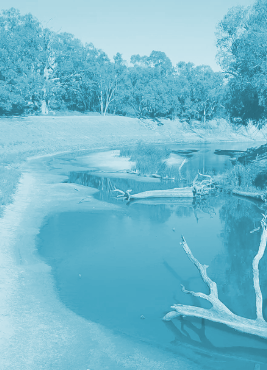MDBA school scheme continues
 The MDBA has launched a program to teach kids about vital local waterways.
The MDBA has launched a program to teach kids about vital local waterways.
The Murray–Darling Basin Authority (MDBA) has partnered with award-winning Petaurus Education Group to deliver the Basin Heroes pilot program.
The program allows students to explore the region's unique river system to understand the importance of careful management of water resources and how water is shared.
In one session last month, students from Whitton Murrami Public School had a hands-on opportunity to step out of the classroom with Basin Heroes, ornithologist Dr Keith Hutton and Murrumbidgee Landcare Incorporated Local Landcare Coordinator (Irrigation Areas) Ms Kathy Tenison.
Students learnt about the Fivebough Wetlands and its significant value to the Traditional Owners.
The MDBA's Griffith Senior Engagement Officer Matt Woodward says it was great news when travel restrictions were lifted because it was extremely important that young people in river communities understood the wider significance of their part of the Basin for future generations.
“Water is the lifeblood of our regional communities and the MDBA wants to show our younger generation how communities rely on a healthy river system for drinking water, food production, tourism, and cultural practices,” Mr Woodward says.
“Dr Hutton's dedication to the quarterly bird surveys has provided a greater understanding of the complex ecology of the wetlands system.
“On 15 September, up to 50 students from 3 schools will take part in a Gala Day of activities with community members, Traditional Owners, educators, scientists and local MDBA representatives.
“Students will again be exposed to Dr Hutton's expertise first-hand when they explore the Basin's local environment with him and Ms Tenison, experiencing the abundance and diversity of waterbirds in the area.
“Students will also develop a case study book on their experience with Dr Keith Hutton and Ms Tenison, culminating in a Celebration Day book launch.
“This program is one example of the MDBA's commitment to working with regional communities to achieve the best long-term outcomes for a healthy Basin,” Mr Woodward said.
Petaurus Education Group Program Coordinator, Caitlin Lawrence said it was fantastic that after many delays due to COVID, the team could start working with Basin schools and communities to improve their knowledge and appreciation of the freshwater ecosystems of the Basin, as well as the Basin's importance for agriculture and communities.
“The Murray–Darling Basin is home to 2.2 million Australians including more than 40 First Nations and generates $22 billion in food and fibre and $11 billion in tourism. More than 120 waterbirds and 50 species of native fish live in the Basin,” Ms Lawrence said.







 Print
Print